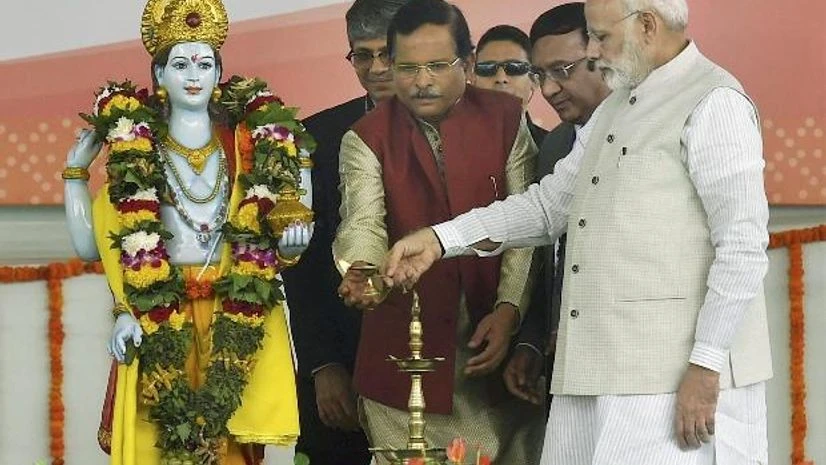The government is working towards setting up an Ayurveda hospital in each district of the country, Prime Minister Narendra Modi said today and asserted that time had come for a "health revolution" under the aegis of the traditional medicine system.
Addressing a gathering after dedicating the country's first All India Institute of Ayurveda to the nation here, the prime minister pitched for affordable and accessible healthcare for the poor on 'Ayurveda Day' today.
The day is also being celebrated as Dhanwantari Jayanti (Dhanteras) across India.
More From This Section
"The AYUSH ministry is working swiftly in this direction, and in more than three years, more than 65 Ayush hospitals have been developed," Modi said.
Noting that the world was heading "back to nature and wellness", Modi described Ayurveda as India's strength and urged those working in the sector to revive it.
He also asked experts from the field to find medicines which can, like allopathy, give immediate relief to people but without side-effects.
Noting that people across the world were getting attracted towards good health as well as wellness, the prime minister suggested that time was ripe for an "atmosphere of Ayurveda". He also batted for better and modern packaging of ayurvedic medicines.
The prime minister urged private players to use part of their corporate social responsibility funds to help strengthen Ayurveda.
"We have seen the IT revolution in last 30 years. Now, time has come for a health revolution under the aegis of Ayurveda. Let's pledge to strengthen, revive Ayurveda," Modi said at the event.
The prime minister suggested a relook at the existing Ayurveda syllabus and underlined the requirement for standard guidelines and treatment in the medicine system so it is not overpowered by allopathy.
Modi pitched for awarding certificates after the completion of each level of Ayurveda education.
Terming swachhata (cleanliness) a simple preventive healthcare mechanism, he said the Union government had built more than five crore toilets in three years.
"People's perception about cleanliness has changed which is reflected in the fact in some people have started referring to toilets as 'izzat ghar'."
According to the prime minister, efforts were allegedly made to destroy "India's strengths" and its traditions such as Yoga and Ayurveda were belittled during the "era of slavery" (pre-independence period).
"Attempts were even made to reduce the faith that Indians had on them. However, after getting freedom from slavery, there was hope that whatever was left would be preserved.
"But it did not become a priority. Things were left to fate. Those nations who leave their heritage behind are destined to lose their identity," he said.
He said the Ayush ministry in collaboration with the Ministry of Skill Development should develop short term courses for students and farmers. The farming of medicinal plants will generate new employment opportunities.
Modi added that the Ministries of Ayush and Agriculture could guide farmers on how to sow medicinal plants in their fields. This would also help farmers boost their income in line with the government's plan to double their income by 2022, when India attains 75 years of independence.
The Ayurveda institute, the prime minister said, would work in collaboration with the AIIMS, Indian Concil of Medical Research and some international organisations. He expressed the hope that it would turn into a main centre of inter- disciplinary and integrative health practices.

)
